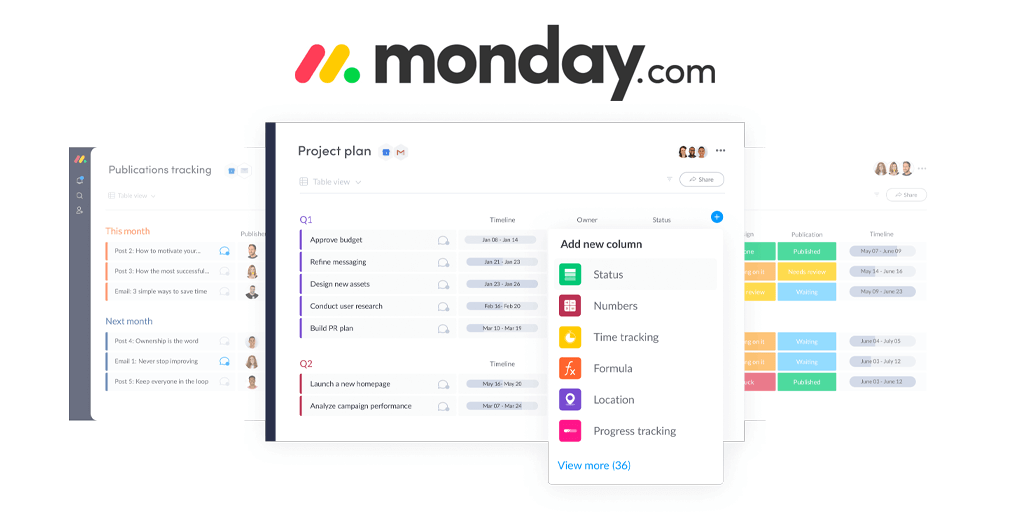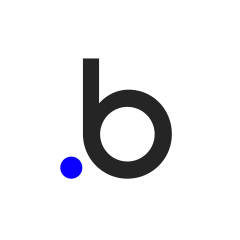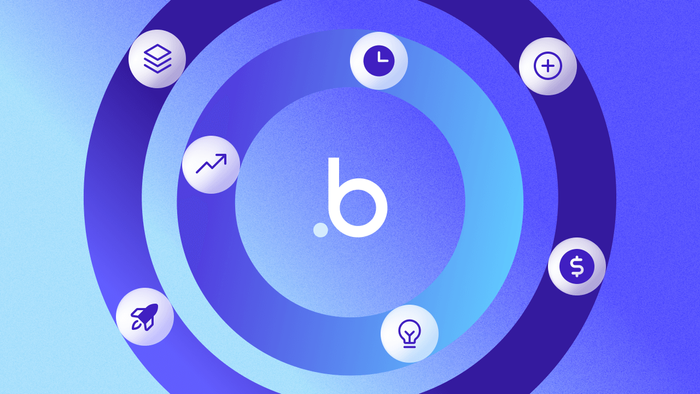At Bubble, we empower entrepreneurs and venture enthusiasts to create their ideas without code. We explore and review the many app-building tools and softwares to give our readers an educated and researched review on each product.
What is monday.com?
Monday.com is a cloud-based work operating system (OS) that powers teams to run processes, projects and everyday work their way. Monday enables teams and organizations to build tailor-made solutions to manage their workflows through the platform's building block features like – board views, dashboard widgets, integrations, automations, and more, without writing any code.
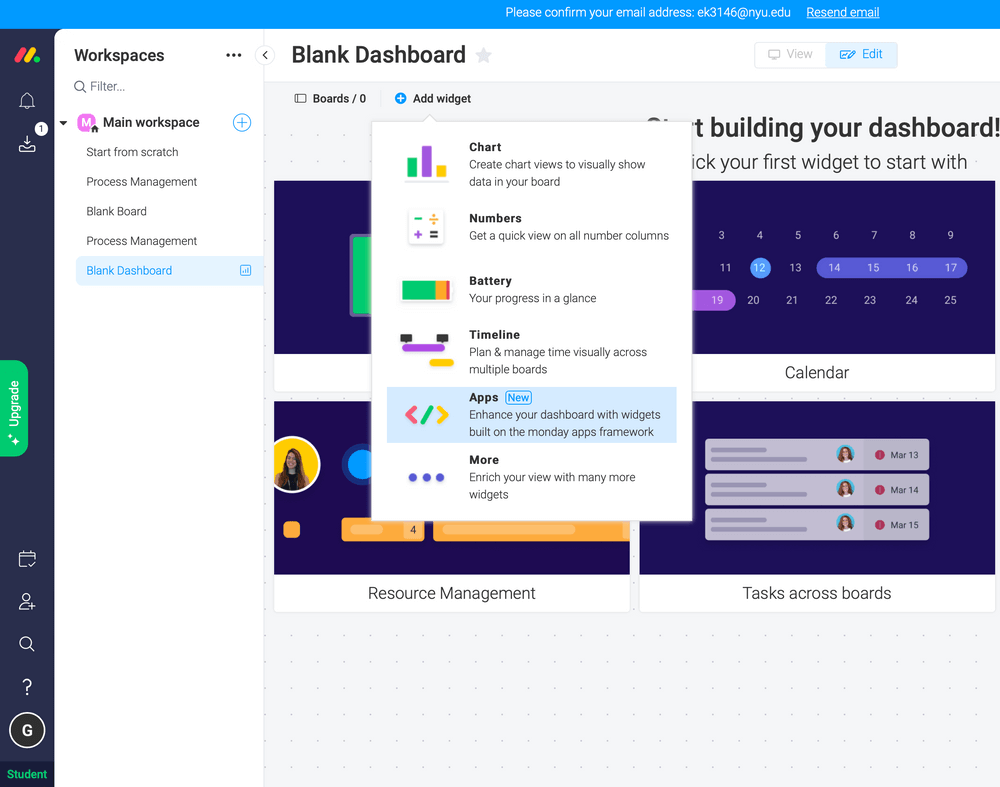
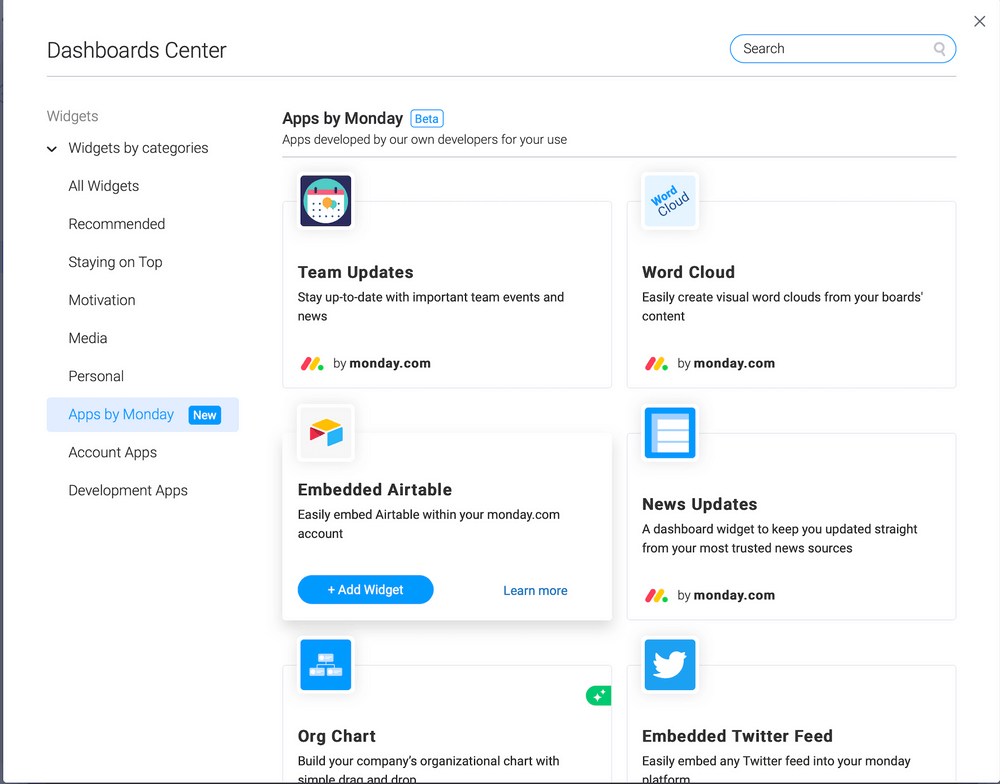
You can customize your dashboard by adding widgets and Apps by Monday.
Monday.com features ready-made templates to fit your organization’s needs. The platform also features drag-and-drop building blocks and the ability to add columns and items to your design so that you can customize your team’s workflow, without writing a single line of code. The platform enables thousands of integrations to support your team's tools, like Zoom, Slack, Zendesk, and more.
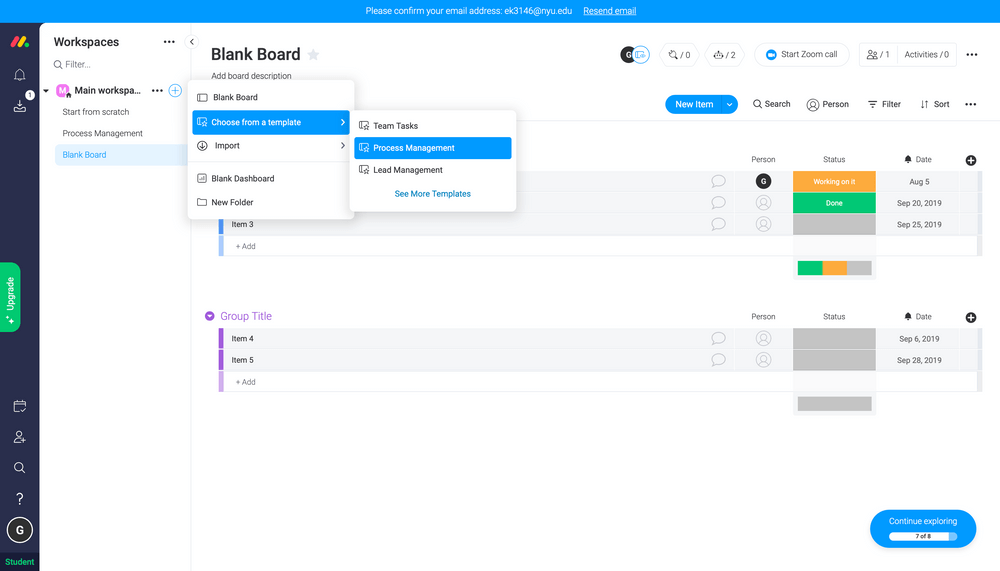
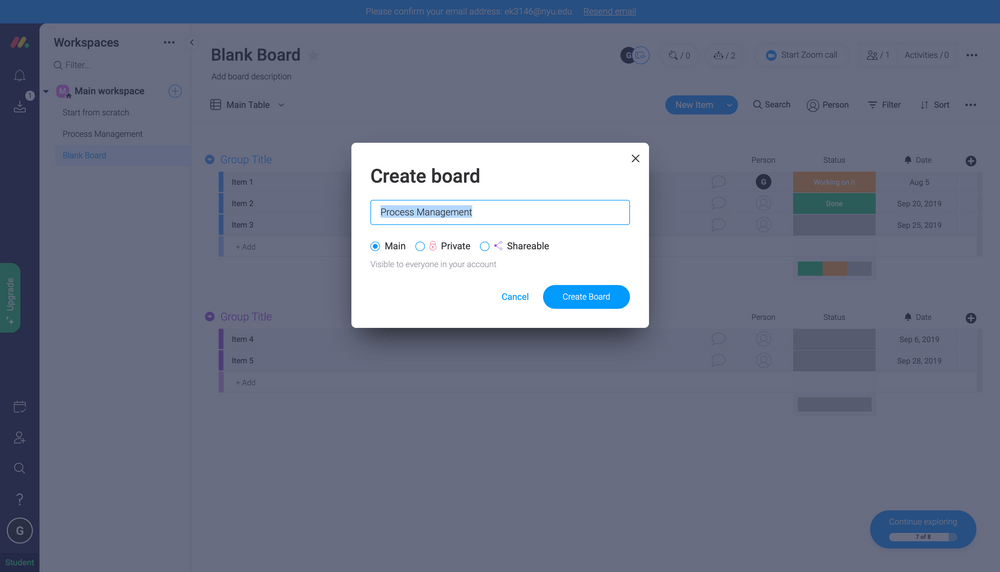
monday.com features ready-made templates and drag-and-drop building blocks.
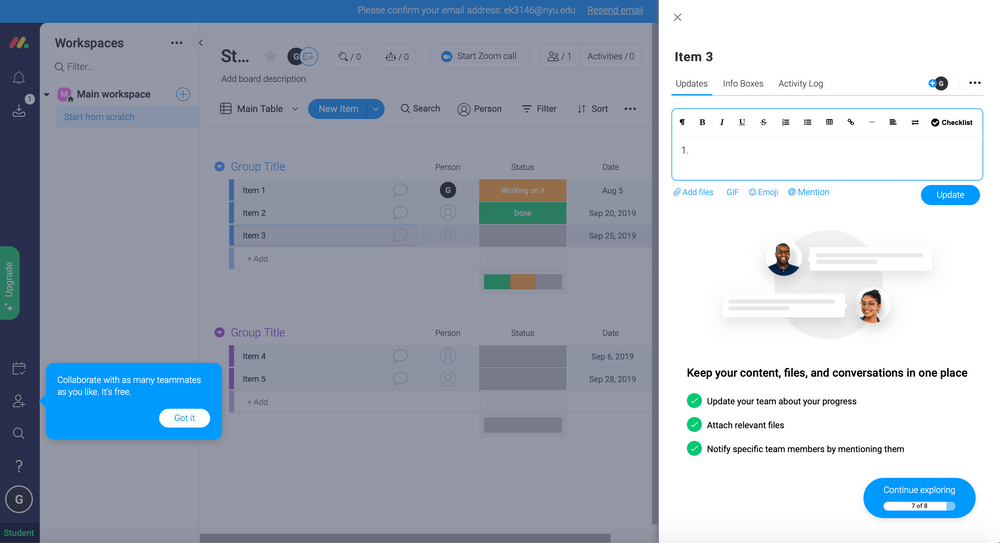
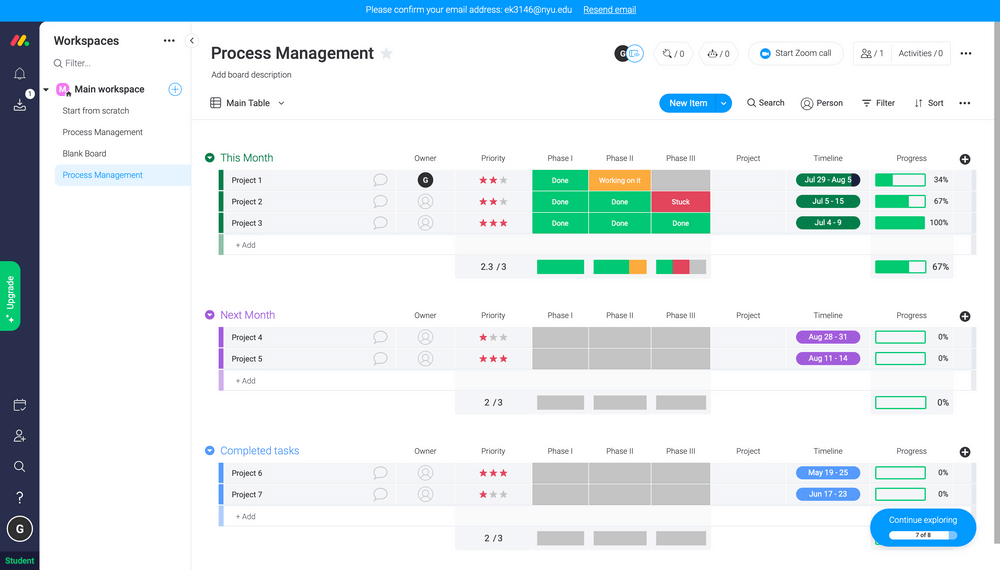
You can add columns and items to your design to customize your team's workflow.
Monday Apps: monday.com has its own App building framework that allows developers to build new types of building blocks on top of monday.com. You can build dashboard widgets, board views, automations, integrations, and more.
You can install the Monday app and use the app's features to build your workflow using a template, or you can create your own work operating system with low-code development.
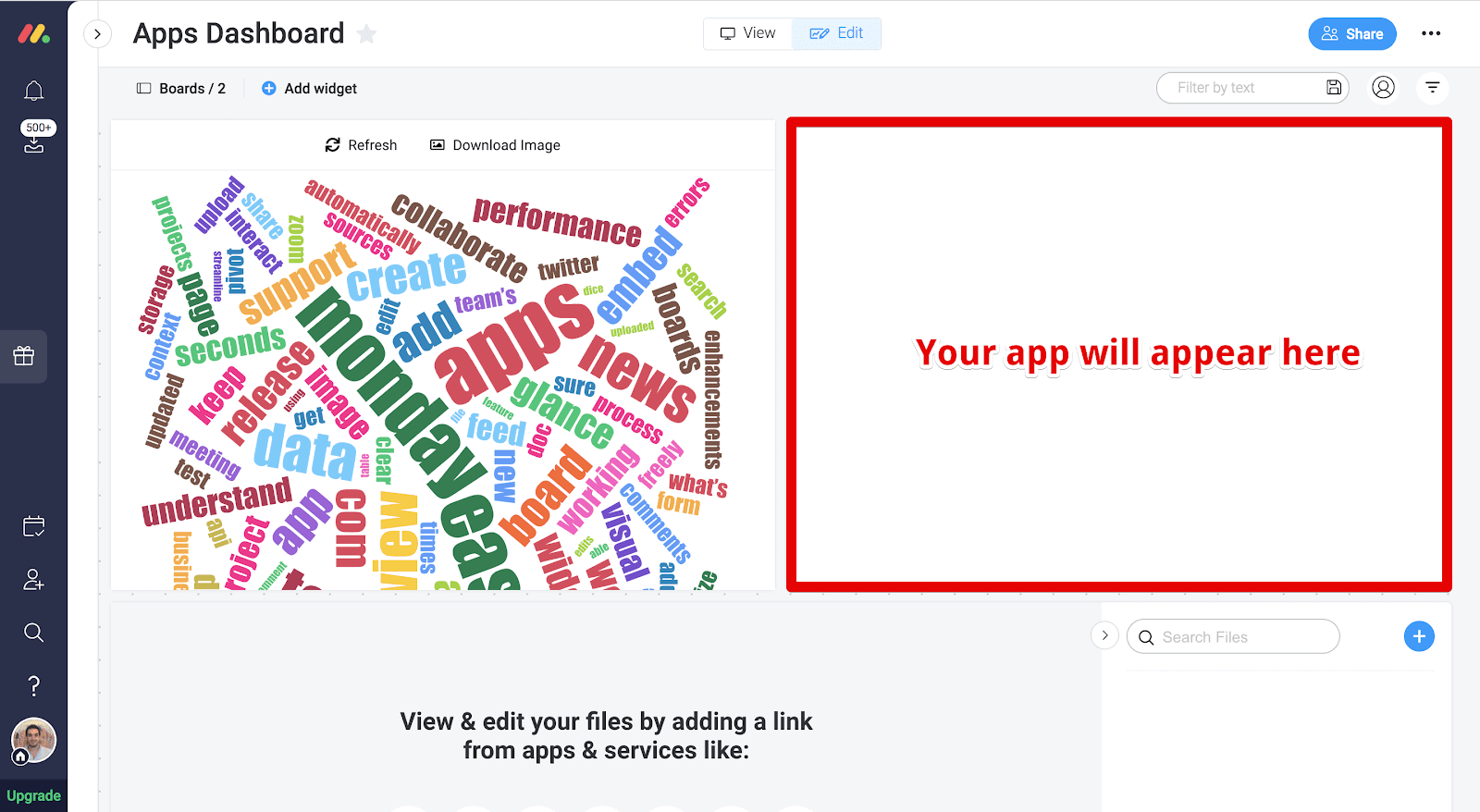
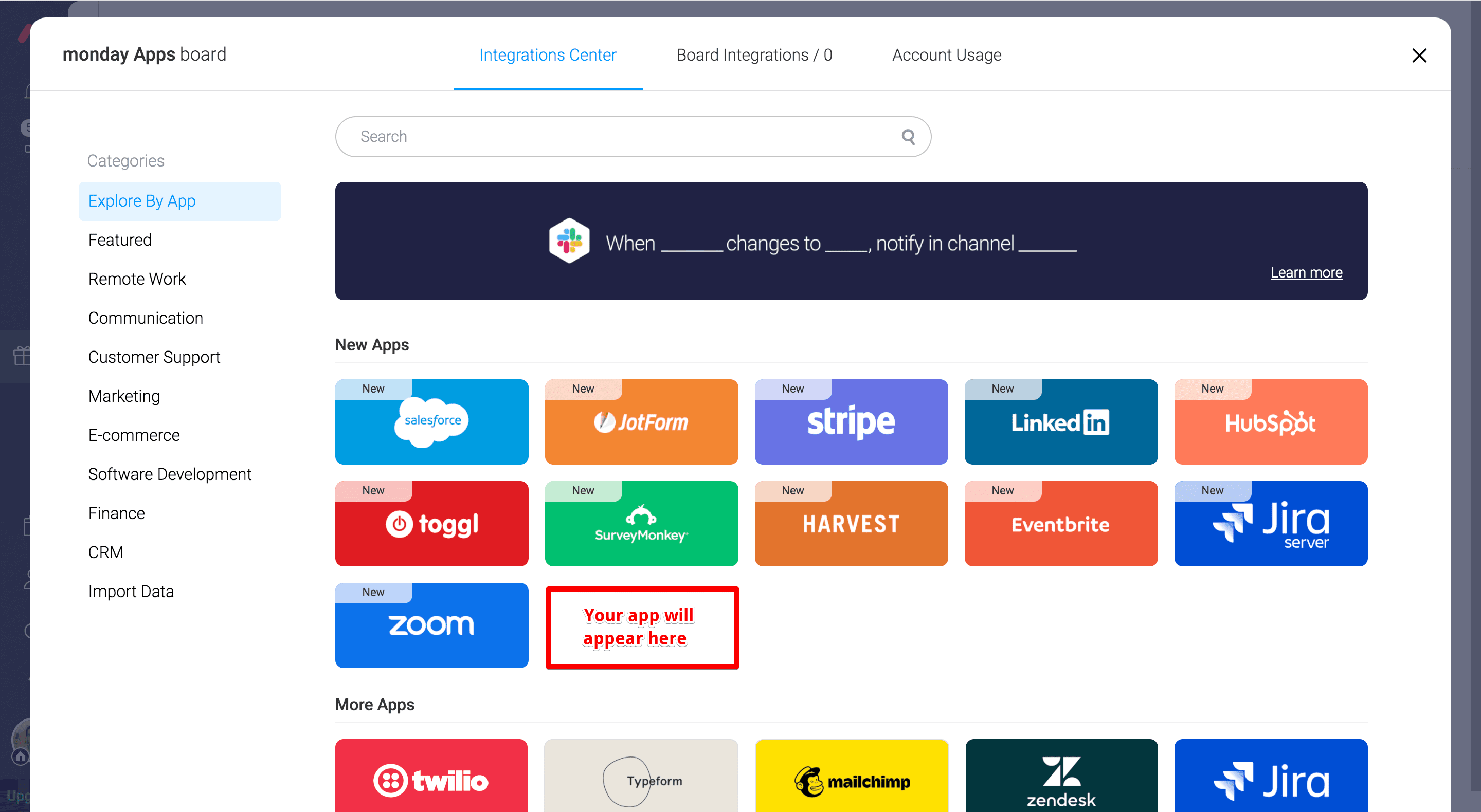
Once you build your Monday App, you can add it to your dashboard and publish it to the monday Apps board marketplace.
With monday.com's work operating system and project management platform, you can collaborate with your team, organize and manage your team’s workflow, connect third party tools, organize projects, manage your product development sprints and releases, and boost your business’s growth.
Who is Monday For?
Monday is designed for individuals and teams and organizations of all sizes and all technical backgrounds. You can have no technical background to use Monday's features, or you can be a developer and still find Monday's features useful.
The platform targets all team and organization departments, within any industry and in any location. HR personnel, marketing and sales professionals, IT personnel, and software developers use Monday. Individuals also use monday.com to create custom workflows and projects.
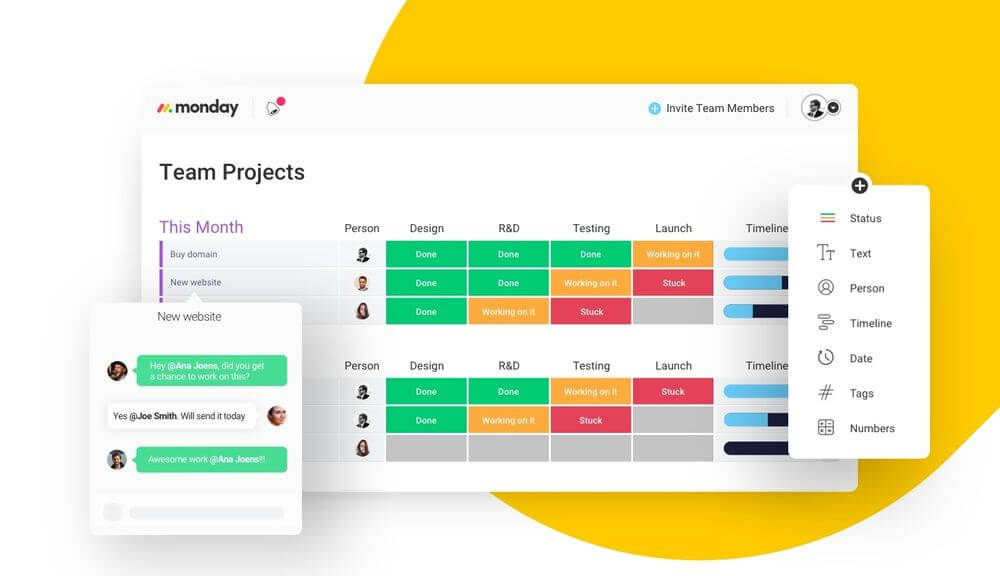
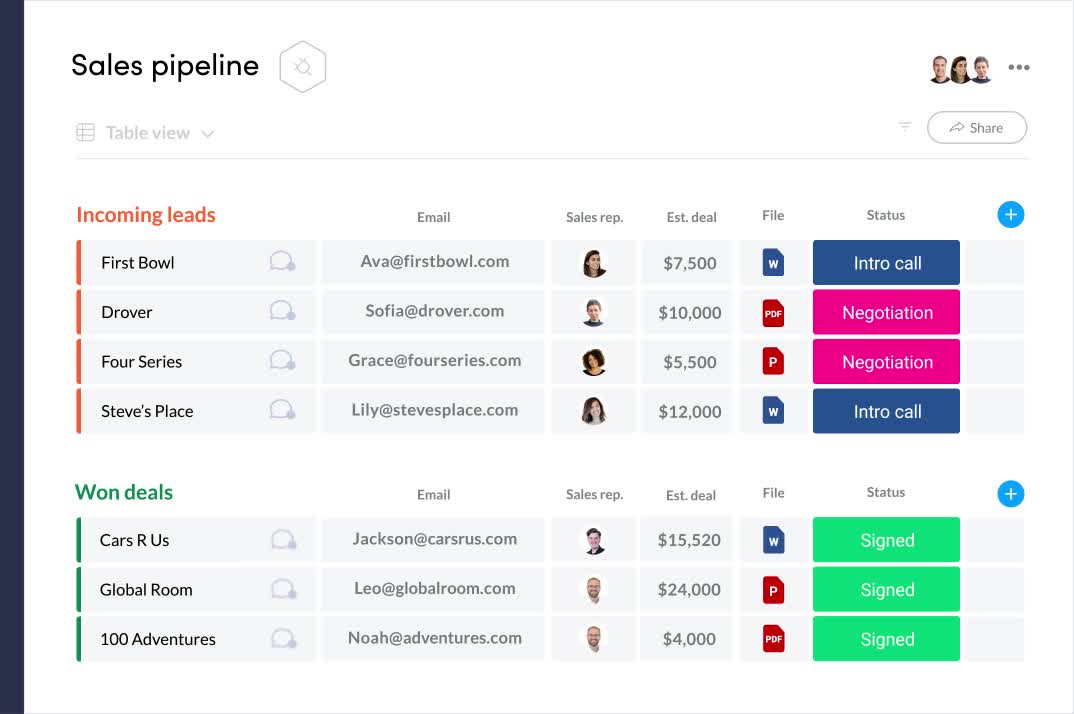
Teams and organization departments within any industry, HR personnel, marketing and sales professionals, IT personnel, and software developers may use monday.com.
Monday is useful for people who do not know code, people who are looking for a low-code, platform, and for developers who are interested in building custom workflows and managing projects and teams.
Monday Cost and Pricing
(Pricing USD model evaluation: August, 2020)
Monday offers four different plans: the Basic, Standard, Pro, and Enterprise. The platform offers a 14-day free trial period for the Basic, Standard, and Pro with unlimited Users and Boards. After the trial, each subscription is billed annually, and pricing increases after every five users up to 50. For all plans, after 50 users, you must contact monday.com for pricing.
All features include unlimited free viewers, unlimited boards, over 20 column types, iOS and Android apps, whiteboard collaboration, embed documents, kanban view, embedded forms, two-factor authentication, self-serve knowledge base, and 24/7 customer support.
Basic: Starting at five users the Basic plan is the cheapest option at $39 per month billed annually. For every additional five users, there is an extra charge of $40 per month billed annually. In addition to all the features in every plan, the Basic also includes 5 GB of file storage, 1 week of activity log, and 1 dashboard per user.
Standard: Starting at five users, the Standard plan is the most popular plan at $49 per month billed annually. For every additional five users, there is an extra charge of $50 per month billed annually. The Standard includes all of the Basic features and 20 GB of file storage, 6 months of activity log, Zoom integration, timeline view, calendar view, four guests with access to shared boards, map view, advanced search, forms customization, 250 integration actions per month, 250 automation actions per month, and three boards per dashboard.
Pro: Starting at five users, the Pro plan is $79 per month billed annually. For every additional five users, there is an extra charge of $80 per month billed annually. The Pro includes all of the Standard features and 100 GB of file storage, one year of activity log, unlimited guests with access to share boards, workload, time tracking, chart view, formula column, custom tags, private boards, 25,000 integration actions per month, 25,000 automation actions per month, 10 boards per dashboard, and Google authentication.
Enterprise: In order to inquire about the Enterprise plan, you must contact Monday. The Enterprise includes all of the Pro features and 1000 GB of file storage, five years of activity log, 250,000 integration actions per month, 250,000 automation actions per month, 50 boards per dashboard, single sign on, audit log, session management, HIPAA compliance, 99.9% uptime SLA, integration permissions, private workspaces, advanced account permissions, work performance insights, dashboard email notifications, pivot analysis and reports, and tailored onboarding.
Monday vs. Bubble: A Comparison
How does monday.com compare to Bubble?
Similarities between Monday and Bubble:
Both monday.com and Bubble offer professionally-built templates to choose from and give you the option to build your own template.
Both feature drag-and-drop elements.
Both allow easy access for your teammates to collaborate and the option to develop privately.
Both offer access to thousands of plugins and third-party integrations.
Both allow you to build internal applications through API documentation.
Both are cloud-based and provide server maintenance, infrastructure, and operations to ensure that your website is always updated to the latest version and is online.
Both offer SEO and Google Analytics to help you engage, measure, and grow your customer base.
The key differences between Monday and Bubble are:
Objectives: Monday is a work operating system platform that enables project and team management features. With Monday you can collaborate with your team, organize and manage your team’s workflow, connect third party tools, organize projects, manage your product.development sprints and releases, and boost your business’s growth.
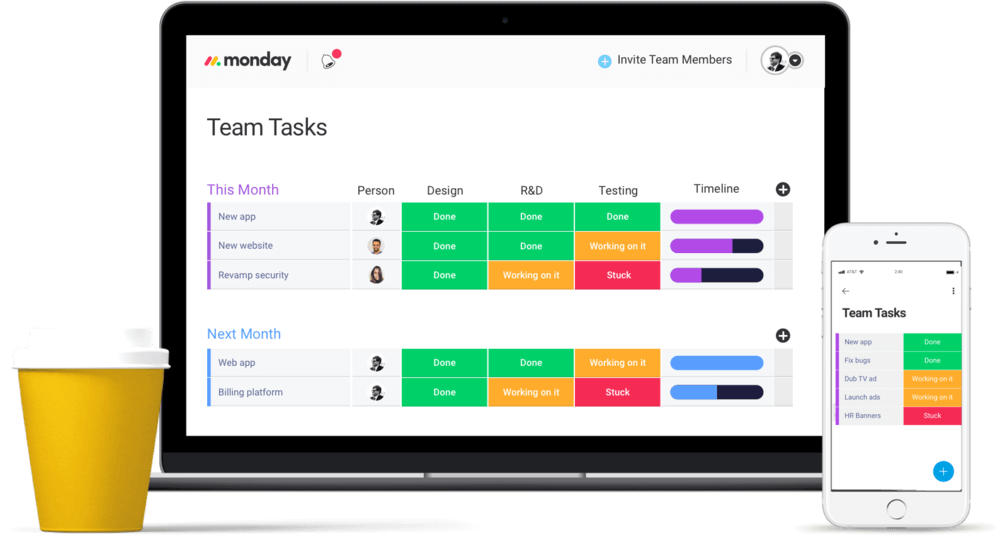
Bubble is a no-code web application builder made for both internal use and for apps with end users. You can build and customize a responsive website from scratch, create interactive, multi-user apps for desktop and mobile web browsers, and launch within minutes. Bubble includes all the tools you need to build sites like Facebook or Airbnb.
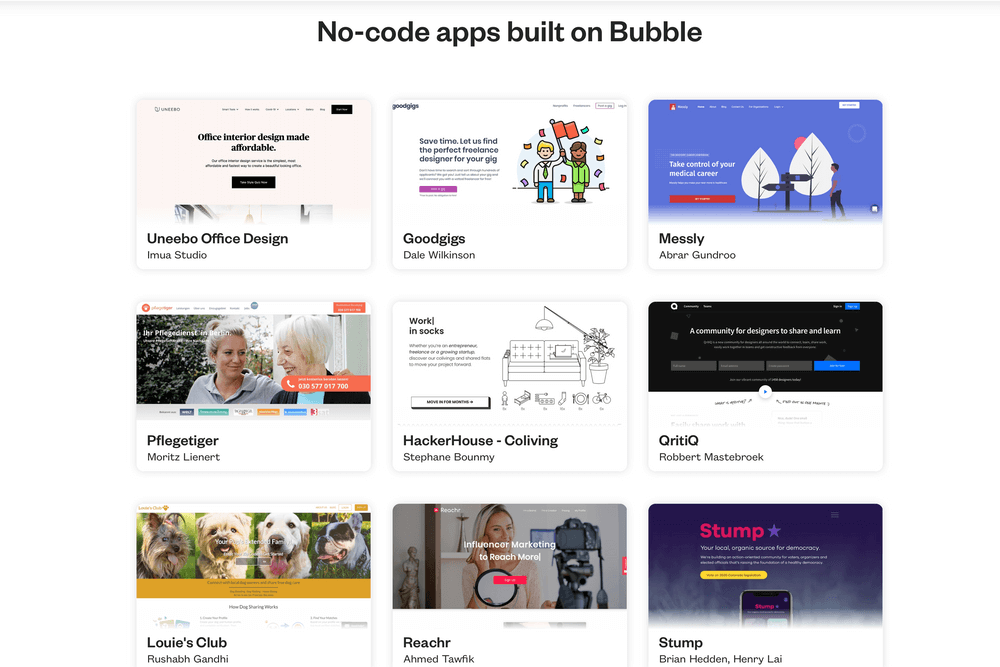
Native Apps: With the Monday Apps Framework, any developer can build on top of monday.com. Once the app is built, teams can embed the app into their work. You can also build your own Monday app and publish it to their Apps Marketplace. With Bubble, you can build-from-scratch, create interactive, multi-user apps for desktop and mobile web browsers, and customize a responsive website. You can also build your app and convert it into a native mobile app using Cordova and other wrappers like Median and Dropsource.
Accessibility: Monday is cloud-based, so you can access the app anywhere with internet. The app is also available for iPhones, iPads, tablets, and/or Android app and Tablet on the App Store and the Google Play Store. Bubble can be accessed in a browser on a computer, tablet or phone. It does not currently have a separate app on the App or Google Play stores.
Board Design Features: After signing up, you can begin customizing your monday.com app with a board. A board is a fully customizable table for managing your projects, workflows, and everyday work. You can customize the board with drag-and-drop elements by adding forms, timelines, items, and more. Bubble features a free-form, completely customizable drag-and-drop design layout. You can also add customized forms, images, maps, items, and more to the user interface.
Alternatives to Monday:
Top alternative no-code platforms or tools that allow you to build a work operation system platform include:
Wavemaker if you're looking for a low-code, rapid application development platform with a modern interface and customizable forms, tables, interactive charts, and more.
If you're looking for a more simple project and task management tool that features forms, work automation, timelines, and goals, try Asana.
If you're looking for a low-code, full-stack automation platform to unify your data and automate your business, try Appian.
If you're looking for a less expensive, project management and team collaboaration platform with workflow automation, boards, and integrations, try Trello.
RELATED: Learn how to build a Trello clone with Bubble's "How To" series.
If you want a tool that combines documents and spreadsheets to streamline your team's internal workflows, take a look at Coda.
If you need an enterprise-focused no-code tool, check out Betty Blocks, Salesforce Lightning, or Unqork.
If you want to build a robust web app with full UI and UX design customization, scalable infrastructure, content and design templates, and support from an active user community, consider Bubble's no-code platform.
About Bubble
Bubble is a leader in the no-code movement. Bubble offers a powerful point-and-click web editor and cloud hosting platform that allows users to build fully customizable web applications and workflows, ranging from simple prototypes to complex marketplaces, SaaS products, and more. Over 400,000 users are currently building and launching businesses on Bubble - some have gone on to participate in top accelerator programs, such as Y Combinator, and even raised $365M in venture funding. Bubble is more than just a product. We are a strong community of builders and entrepreneurs that are united by the belief that everyone should be able to create technology.
Join the no-code movement today.
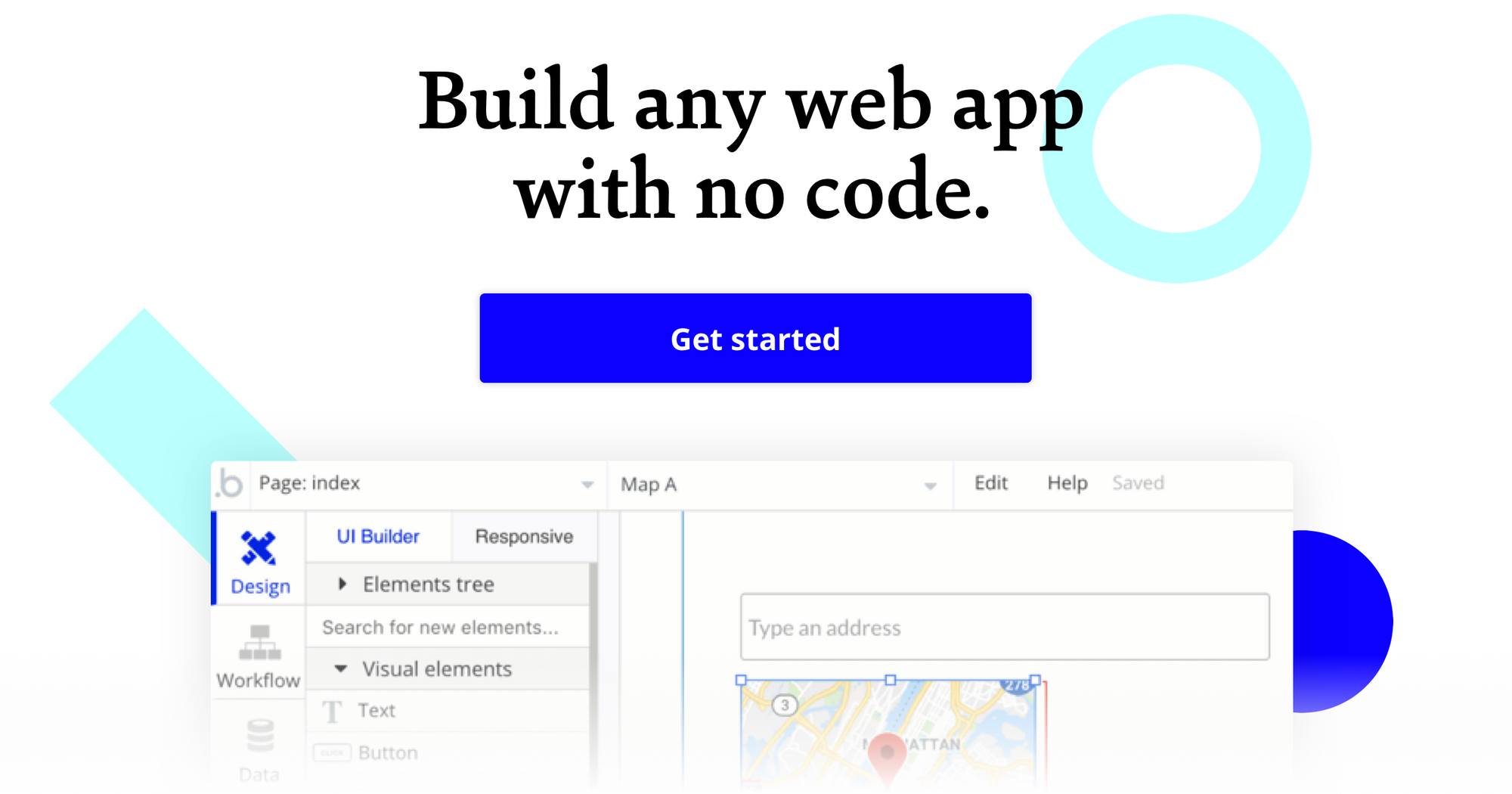
Disclaimer: The goal of these reviews is to provide an honest, practical, differentiated comparison of features and educate readers on tools in the no- code ecosystem so that you can evaluate how these services fit together and serve your needs.
Build your app on Bubble's Free plan. No need to upgrade until you're ready to launch your app.
Join Bubble